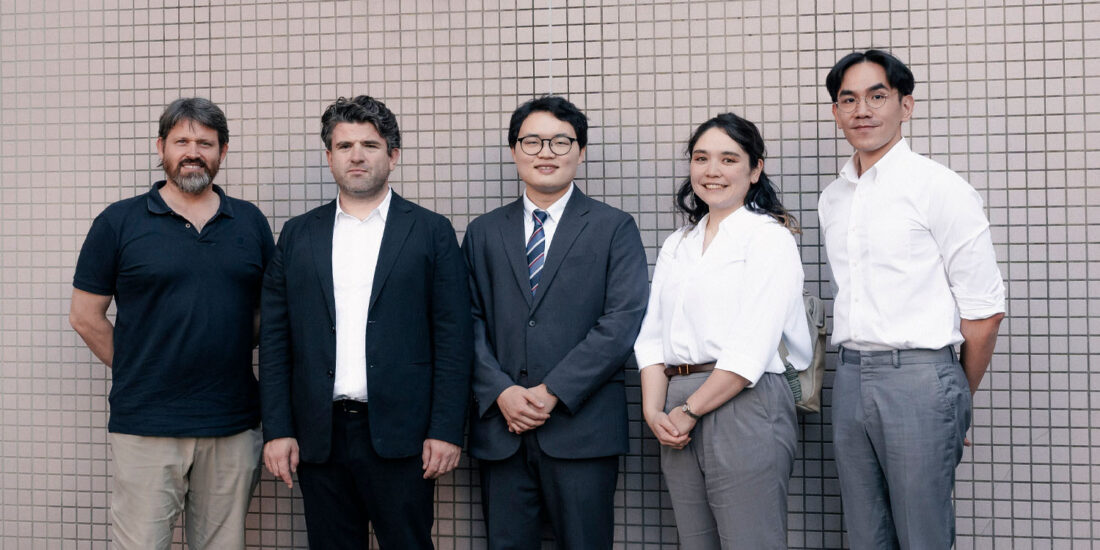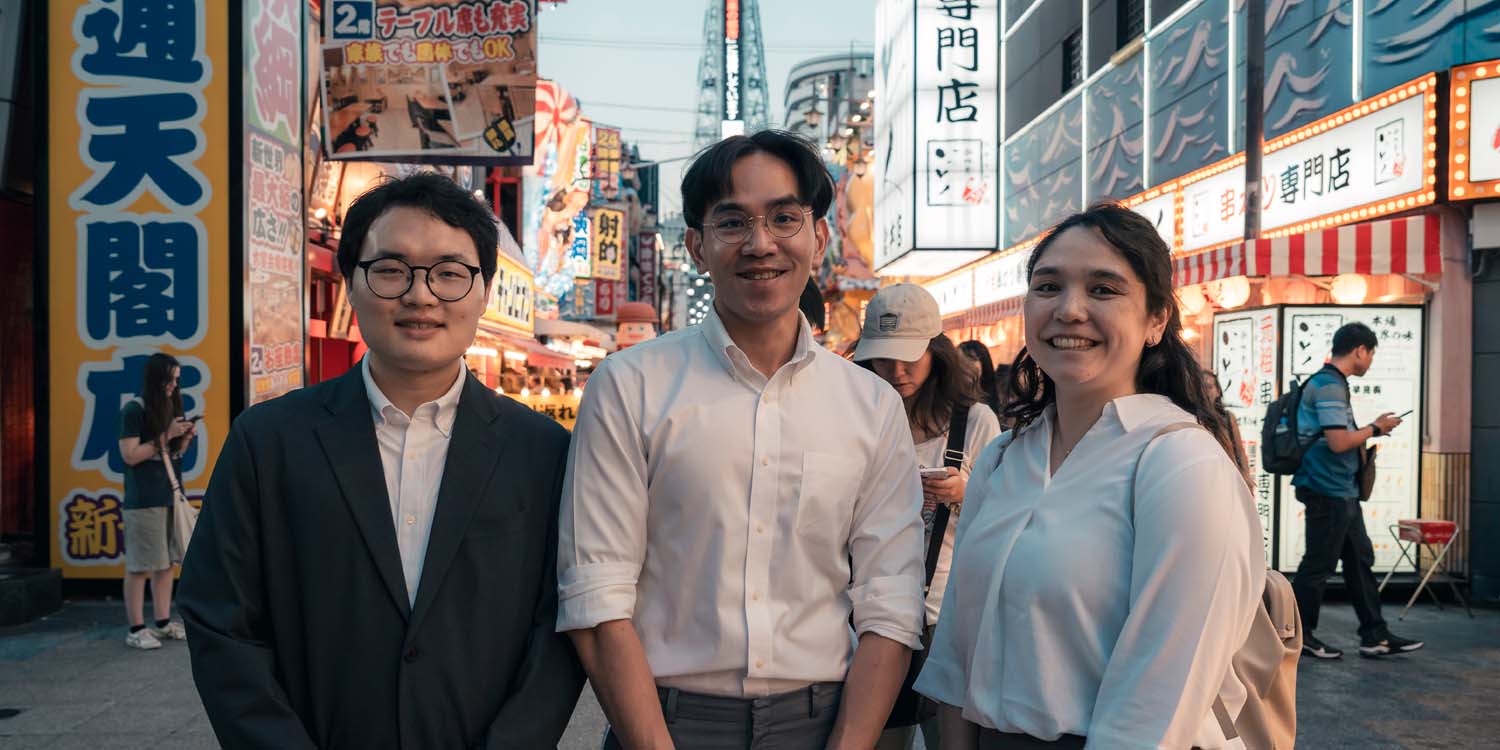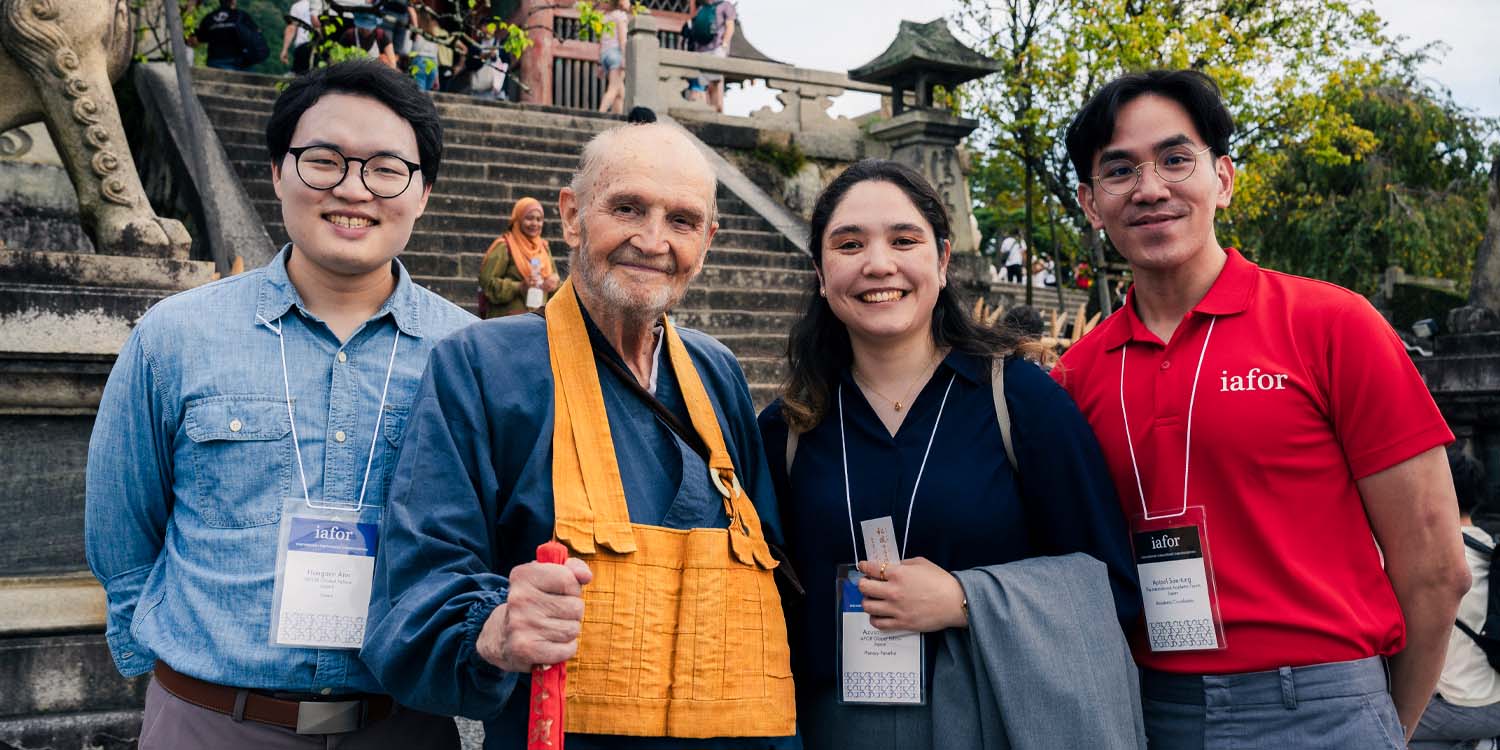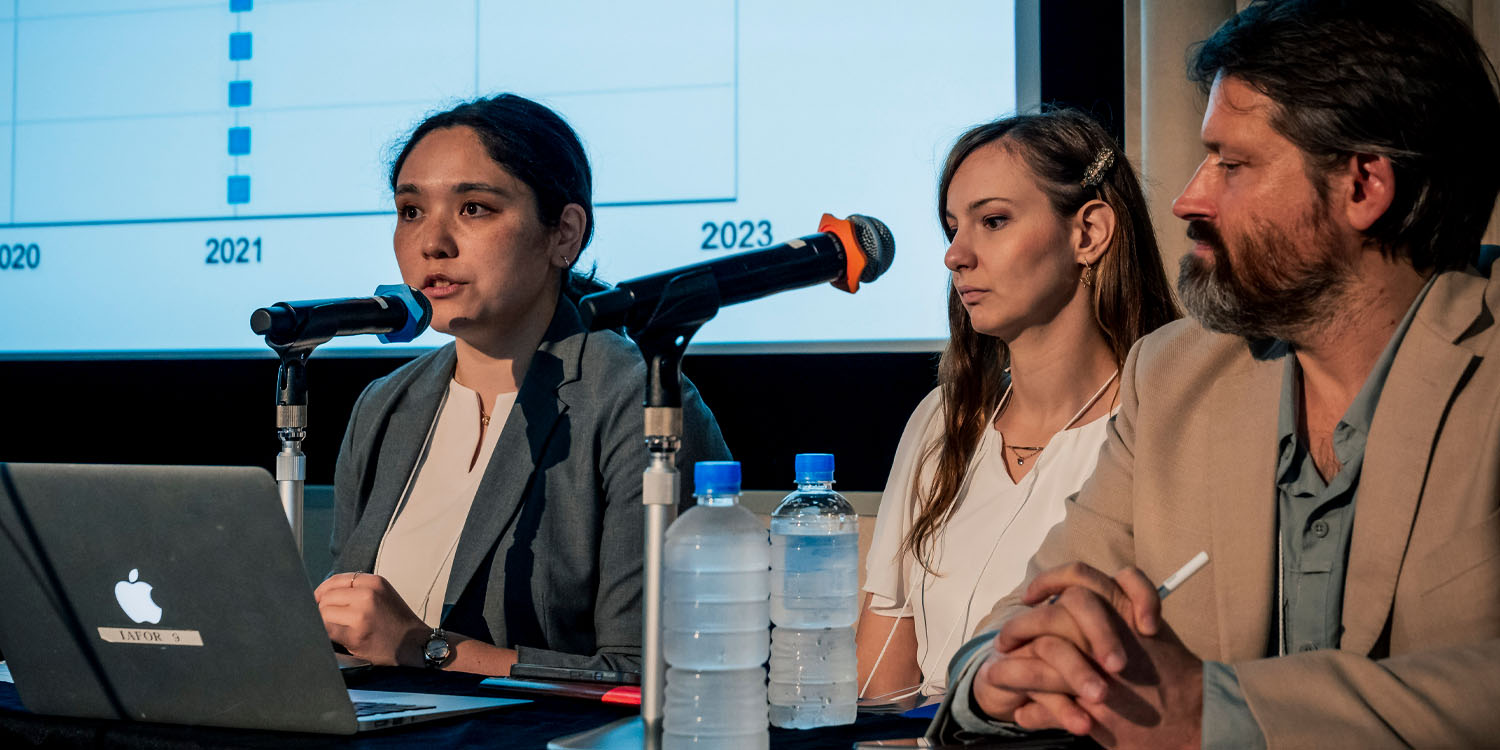The first cohort of IAFOR’s Global Fellowship Programme has arrived in Japan. The Global Fellows were in Osaka and Kyoto for Fellowship Week from October 13-18, 2024, where they visited the Osaka University School of International Public Policy (OSIPP), explored Osaka's history and iconic places, and participated in events, presentations, and workshops at the Kyoto Conferences on Arts, Media & Culture (KAMC2024) and Media, Communication & Film 2024 (MediAsia2024). Mr Hongmin Ahn and Ms Azusa Iwane were the first fellows welcomed during Fellowship Week.
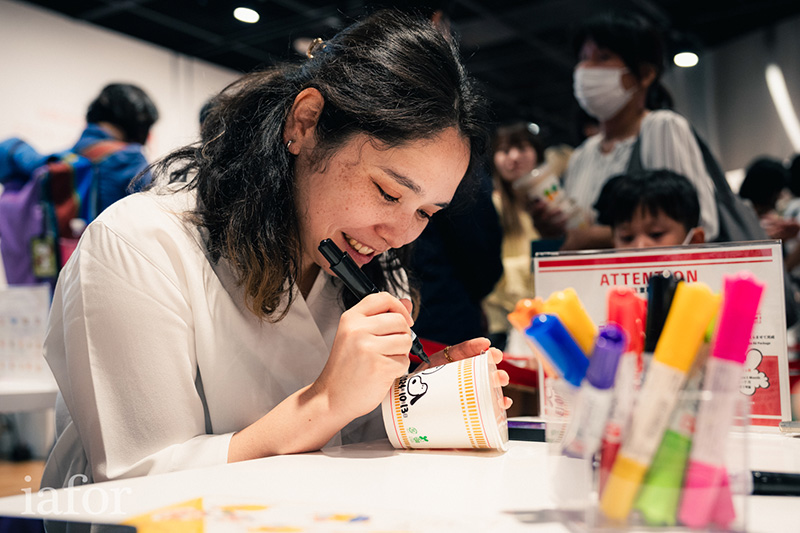
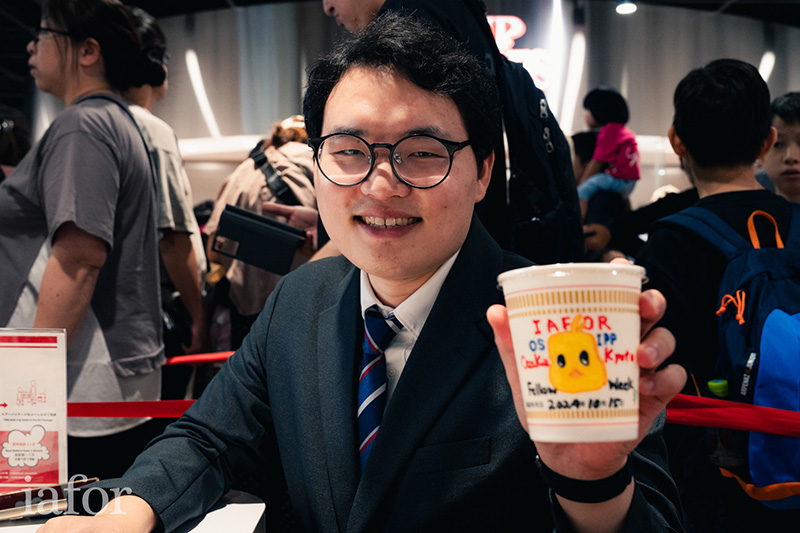
Fellowship Week kicked off in Osaka, where the fellows were taken on a city tour to one of the iconic spots for visitors to Osaka: The Cup Noodle Museum. Here, the fellows learned about the development of simple everyday items such as the cup noodle, and how ‘thinking outside the box’ brings solutions and essentially creates great inventions. Afterwards, the fellows paid a visit to IAFOR’s partner institution, the Osaka University School of International Public Policy (OSIPP). At OSIPP, they were welcomed by Dr Joseph Haldane (Chairman and CEO, IAFOR) and Dr Virgil Hawkins (Osaka University), both Co-Directors of the IAFOR Research Centre (IRC) at the school. During the meeting, Fellows shared their research progress and discussed how the IRC can aid in advancing their research. Dr Hawkins talked about the capacity OSIPP can offer, such as spaces for international events and access to resources and online databases. Dr Haldane highlighted the importance of how IAFOR can utilise its global network and connect them to the Fellows, which will be beneficial to them both during their fellowship and beyond. The visit to OSIPP ended with a campus tour led by Dr Hawkins.

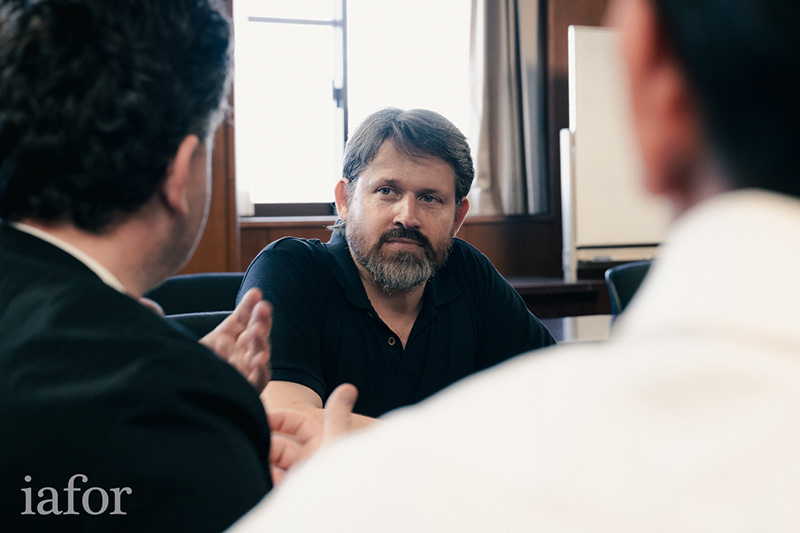
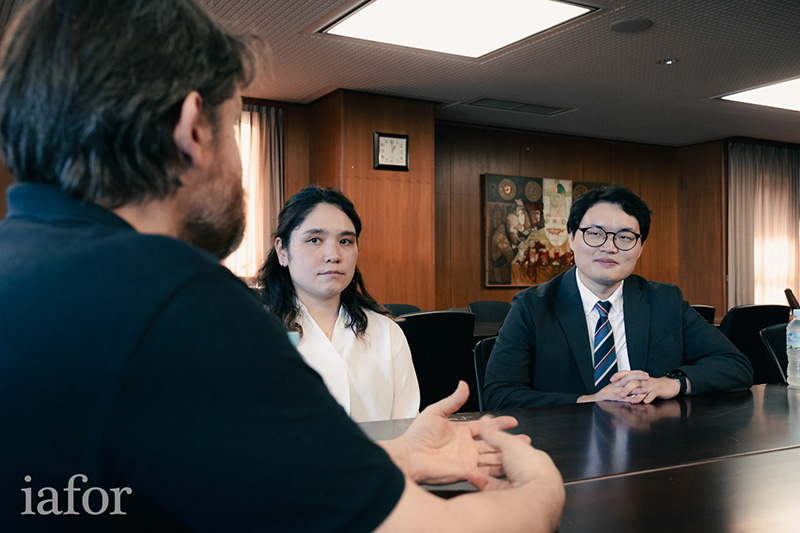
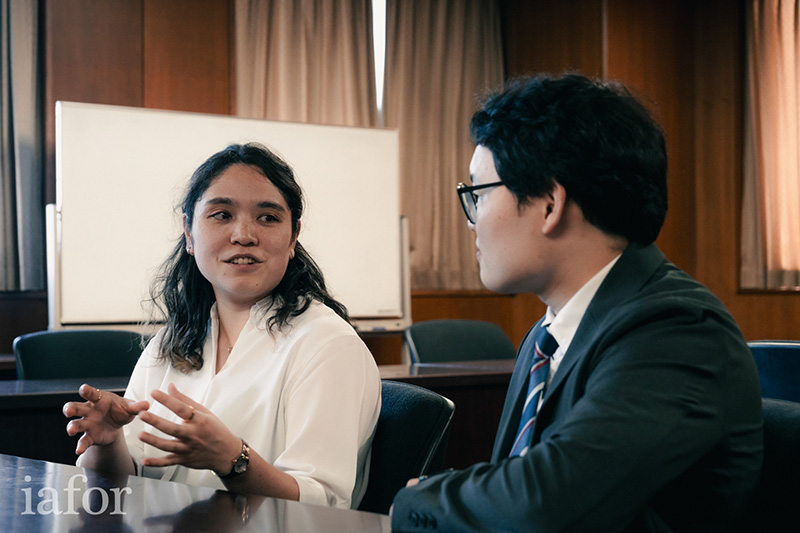
Afterwards, the Fellows had a chance to visit some of Osaka’s historical sites on a guided tour, including Osaka Castle, Shitennoji Temple, and Shinseikai, before joining the Fellow Dinner with a teppanyaki experience in the city’s Dotonbori area. The Fellows had a chance to meet with Dr Umberto Unsaldo (University of Hong Kong, Hong Kong), where they discussed the possibility of research collaboration.
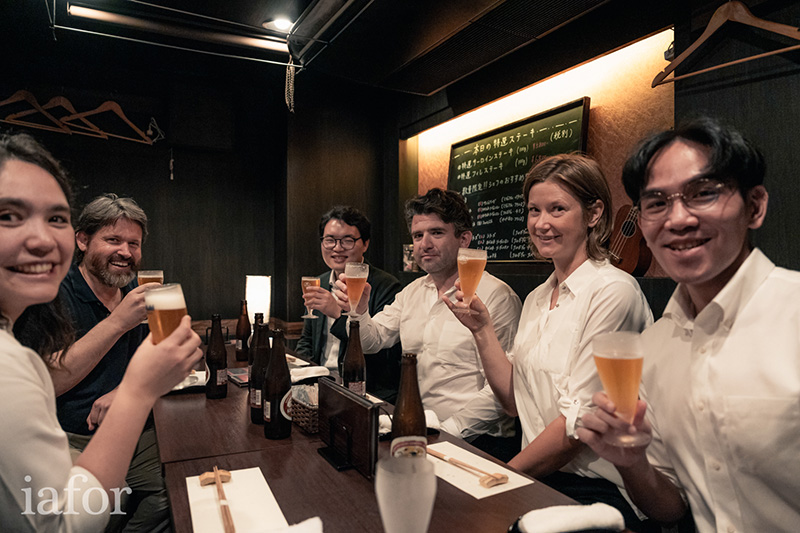

The Fellowship Week continued in Kyoto the following day, where Ms Iwane organised an event titled ‘What is the Watchdog Watching: World Media Coverage in Japan and the Future of Journalism’ on October 15, 2024, at Kyoto Research Park, Kyoto, Japan, to explore the current challenges to media independence, examining the pressures faced by journalists and media outlets. The event invited three panellists from different media fields: Mr Makoto Kusakawa from the Asahi Shimbun and Mainichi Shimbun, Mr Keiichi Hashimoto, Senior Advisor from the Japanese International Cooperation Agency (JICA); and Professor Virgil Hawkins from Osaka University. The event reached out to a wide-ranging audience with interests in journalism and media, and the positive response from both the panellists and the audience lent confidence to Ms Iwane to organise similar events on a more regular basis. As an IAFOR Global Fellow, she aspires to create a space where both media professionals and regular citizens can reflect on the current state of media.
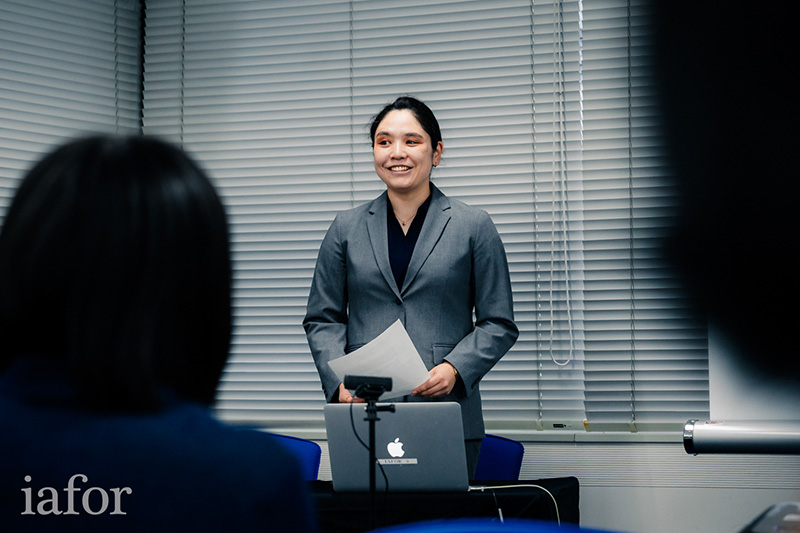
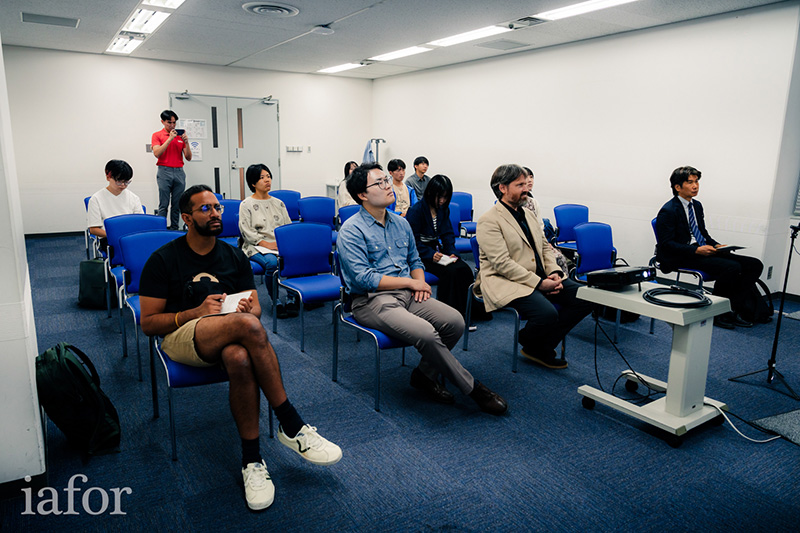
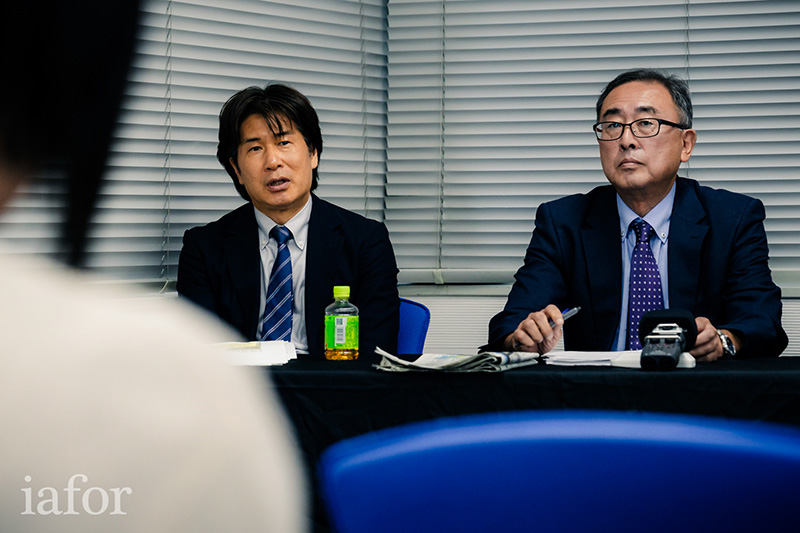
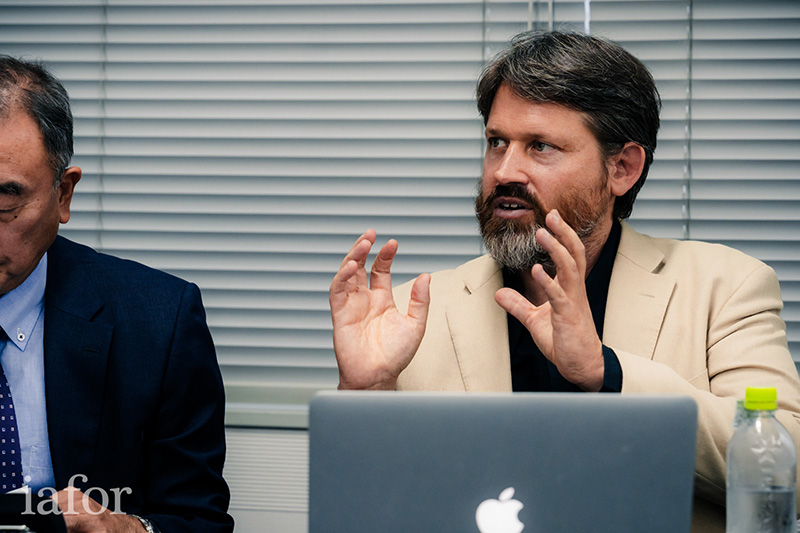
After the media event in the morning, the fellows joined the Conference Cultural Tour led by Professor Brian Victoria (Oxford Centre for Buddhist Studies, University of Oxford, United Kingdom, who led the Fellows alongside conference delegates through a tour of famous shrines in Kyoto utilising his expertise. The tour gave the participants an overview of the development of Buddhism and sects of Buddhism in Japan, adding the value of understanding to the temples and shrines they visited beyond its beautiful landscape, arts, and architecture. Throughout the nearly five hour tour, the Fellows were able to connect with delegates within the IAFOR network, learning more about each other as well as discussing the opportunities in joining the IAFOR Global Programme next year. The tour’s final stop was at Kiyomizu-dera, Kyoto’s most renowned spot for its autumn leaves and panoramic views of the city. The Fellows had a chance to discuss Buddhism Studies in depth, as well as current world media at dinner, joined by Professor Victoria and the IAFOR Academic and Media Team.
On October 16, the Plenary Day of the conference, Ms Iwane gave a panel presentation titled ‘Media and Power in the Asia-Pacific,’ together with another IAFOR Global Fellow, Dr Shuqi Wang, and Sonja Viktorija Anić (Osaka University), moderated by Professor Hawkins. The panel discussed the relationship between media and power in the Asia-Pacific region in both domestic and international arenas, with a special focus on Japan and China. Ms Iwane’s presentation focused on the relationship between political/economic elites and the news media in Japan, giving domestic context to the panel before expanding to the international context. Dr Wang’s presentation ‘Indo-Pacific or Asia-Pacific: Competing Media Narratives among Major Powers’, discussed how media narratives play a big role in the militaristic and economic competition between great powers through acquiring agenda-setting power and engaging in status-seeking behaviours. The full report on this panel presentation and other panel presentations can be found in the Conference Report and Intelligence Briefing for the KAMC/MediAsia2024 scheduled for release later this month. On this day, the fellows also joined the Conference Dinner, where all plenary speakers, Conference Programme Committees, and registered delegates were invited to experience traditional Kyoto dining together at Yachiyo Nanzenji. The Fellows’ presence once again provided the opportunity for IAFOR’s academic network to mingle with and exchange research and ideas with each other, a key component to IAFOR’s Global Fellowship programme.

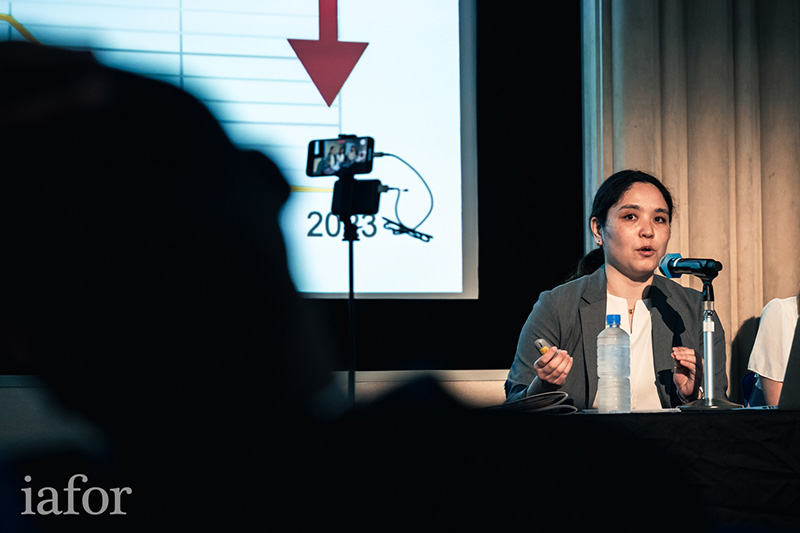
On October 17, Ms Iwane and Professor Hawkins facilitated a workshop at the conference on ‘media literacy,’ which has been frequently used in the context of countering misinformation and propaganda spread primarily online by mal-intentioned domestic and foreign actors. However, as Ms Iwane has noted in her research, the need to counter misinformation and propaganda spread through official channels by domestic and allied governments is rarely seen as an issue. The workshop provided new perspectives on media literacy and necessary tools for reading mainstream media critically. The workshop was conducted with a short introductory case study, culminating in group work among the participants. Through the material prepared by the facilitators, participants were able to share how they evaluate the information they receive and how they can ‘verify’ or re-evaluate the contents, sources, and the ‘purpose’ of the information. Participants were able to re-evaluate their critical reading skills for media content and realise the importance of independent media and independent voices. The workshop was joined by conference delegates, an IAFOR Global Fellow, and the IAFOR Academic and Media team.
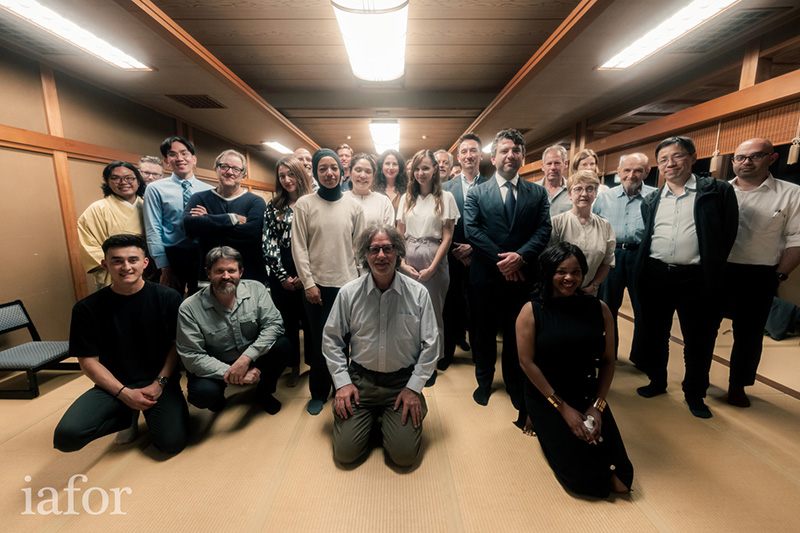
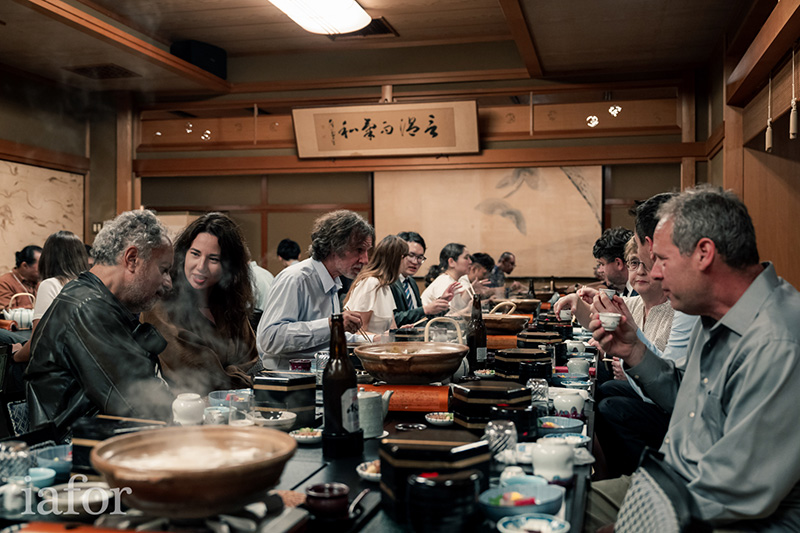
On the final day of Fellowship Week, the Fellows joined conference presentation sessions and gave an interview with IAFOR. When asked about how they became IAFOR Global Fellows, both Fellows learned about the IAFOR Global Fellow Programme as they have subscribed to the IAFOR mailing list, and Ms Iwane was also a previous IAFOR delegate of MediAsia. The interview highlights their positive experience in joining both the Fellowship Week and the IAFOR Global Fellows programme, citing that it is a great opportunity for them to advance their research. They highlighted how the IAFOR Global Fellow Programme has provided logistical and financial support for them in the process of reaching their research goals. Additionally, joining Fellowship Week and the conference gave them the opportunity to network and make connections to further their research opportunities. Looking ahead into the future beyond this Global Fellows Programme, both look at the potential the IAFOR network can bring, with Ms Iwane focusing on her first-hand experience in hands-on projects and linking her research to the public. Mr Ahn views this programme as an opportunity to advance his academic career, aiming to use his current research affiliated with the fellowship programme to apply for a PhD programme. Finally, both fellows recommended potential fellows of the next cohort to join the IAFOR Global Fellows programme, due to its being an international, intercultural, and interdisciplinary organisation. Mr Ahn highlights that IAFOR’s interdisciplinary nature pushes the boundaries of his research and encourages him out of his comfort zone. For Ms Iwane, she encouraged the next cohort to be proactive in joining the programme, and that seeking help from IAFOR and its network has benefited her a lot. Please stay tuned for the full interview video!
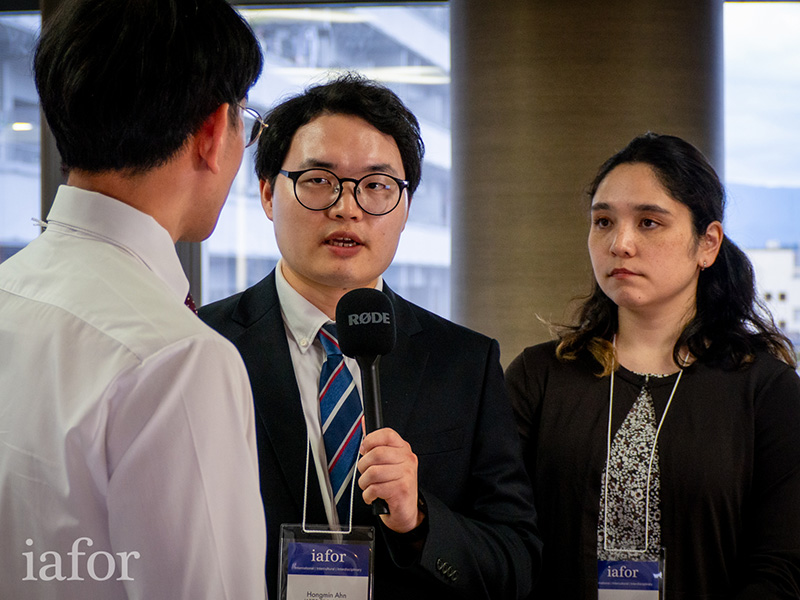
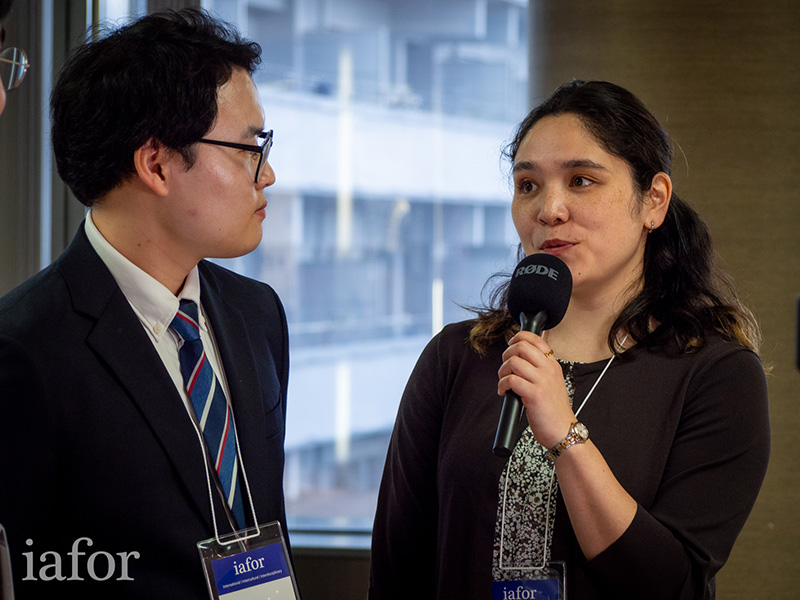
Fellowship Week was successful in bringing together the Global Fellows to share and discuss their research, strengthen the connection among the Fellows within the cohort, as well as create new collaborations with academics and industry professionals within the IAFOR network. It also served as an excellent opportunity to integrate the Global Fellows Programme into IAFOR conferences, which increased IAFOR’s research capacity in reaching out to conference delegates and to a wider audience in society. ‘Independence Voices’, the inaugural theme of the IAFOR Global Programme for the 2024/2025 cohort, were reflected in the itinerary of Fellowship Week: the Fellows’ individual research and events, and the future IAFOR conferences the Global Fellows will be a part of.

